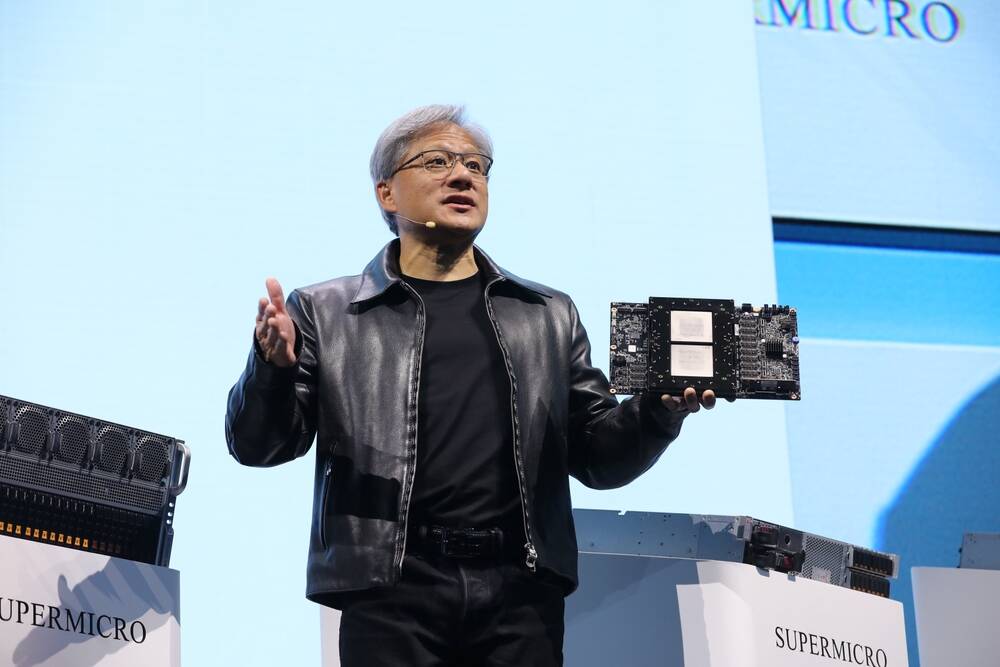US Willing To Compromise With Nvidia Over AI Chip Sales To China

The Biden administration has taken a special interest in Nvidia's sale of accelerators to China and is now working with the chipmaker to establish which chips the Middle Kingdom is permitted to acquire.
In an interview with Reuters, commerce secretary Gina Raimondo emphasized that Nvidia could and should sell GPUs in China, as most AI applications using them would be commercial in nature.
"What we cannot allow them to ship is the most sophisticated, highest processing power AI chips, which would enable China to train their frontier models," she told the newswire. She added that that, based on talks with CEO Jensen Huang, it's "crystal clear" Nvidia wants to play by the rules.
The accelerator champ confirmed that it is talking to the Commerce Department regarding export restrictions. "We are working with the US government and, following the government's clear rules, are working to offer compliant datacenter solutions to customers worldwide," an Nvidia spokesperson told The Register.
The US government has grown increasingly concerned about the potential use of AI models in military applications. In October, the Biden administration introduced tougher performance limits on GPUs and AI accelerators sold to the Middle Kingdom. Those rules meant that even Nvidia’s A800 and H800 GPUs, which were developed specifically to comply with the previous round of restrictions from 2022, were no longer allowed to reach China.
Nvidia, which is by far the largest supplier of accelerators used in AI applications, was among the hardest hit by the administration’s October 2023 changes. Shortly after the rules were made public, it published an SEC filing warning investors that a large portion of its datacenter lineup was likely to exceed the new performance caps.
- Nvidia's China-market H20 chips hit another speed bump
- AMD says it'll jump through Uncle Sam's hoops to sell AI chips to China
- Biden has brought the ban hammer down on US export of AI chips to China
- Dell APJ chief: Industry won't wait for Nvidia H100
The rules hadn't even gone into effect when Nvidia was preemptively ordered by the government to cease all remaining shipments of affected GPUs.
In response, Nvidia reportedly plans to introduce a trio of GPUs that limbo right under the performance caps. However, more recently we've learned that the most powerful of those machines, the H20, has been delayed until next year.
Raimondo has made it clear she isn't a fan of chipmakers who test the limits of export bans. "I'm telling you, if you redesign a chip around a particular cutline that enables them to do AI, I am going to control it the very next day," she warned with clear reference to Nvidia during fireside chat [18:45] at the Reagan National Defense Forum last week.
This puts Nvidia and other chipmakers like Intel and AMD – both of which have expressed interest in building export compliant chips for the Chinese market – in an interesting position. If they fly too close to limits, they risk the Commerce Department's wrath. Yet China is also too large a market to ignore as they pursue their goal of enhancing shareholder value. ®
From Chip War To Cloud War: The Next Frontier In Global Tech Competition
The global chip war, characterized by intense competition among nations and corporations for supremacy in semiconductor ... Read more
The High Stakes Of Tech Regulation: Security Risks And Market Dynamics
The influence of tech giants in the global economy continues to grow, raising crucial questions about how to balance sec... Read more
The Tyranny Of Instagram Interiors: Why It's Time To Break Free From Algorithm-Driven Aesthetics
Instagram has become a dominant force in shaping interior design trends, offering a seemingly endless stream of inspirat... Read more
The Data Crunch In AI: Strategies For Sustainability
Exploring solutions to the imminent exhaustion of internet data for AI training.As the artificial intelligence (AI) indu... Read more
Google Abandons Four-Year Effort To Remove Cookies From Chrome Browser
After four years of dedicated effort, Google has decided to abandon its plan to remove third-party cookies from its Chro... Read more
LinkedIn Embraces AI And Gamification To Drive User Engagement And Revenue
In an effort to tackle slowing revenue growth and enhance user engagement, LinkedIn is turning to artificial intelligenc... Read more

